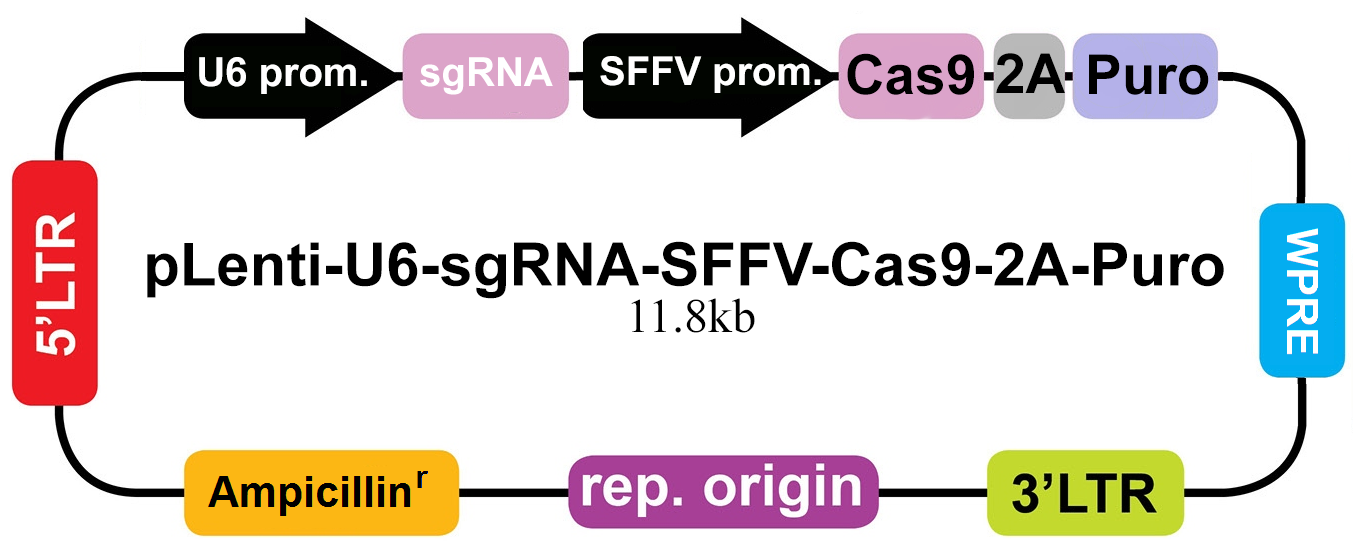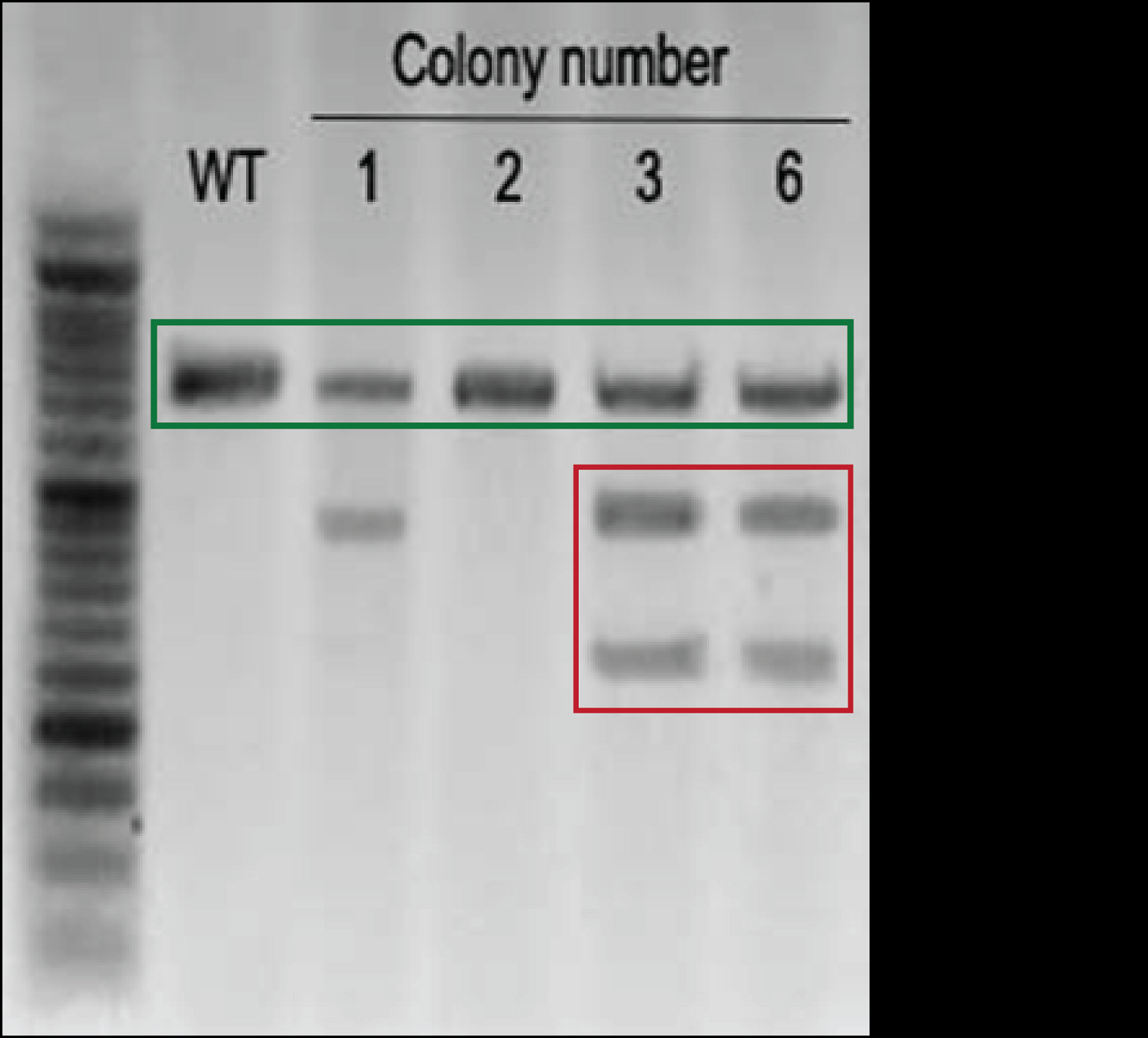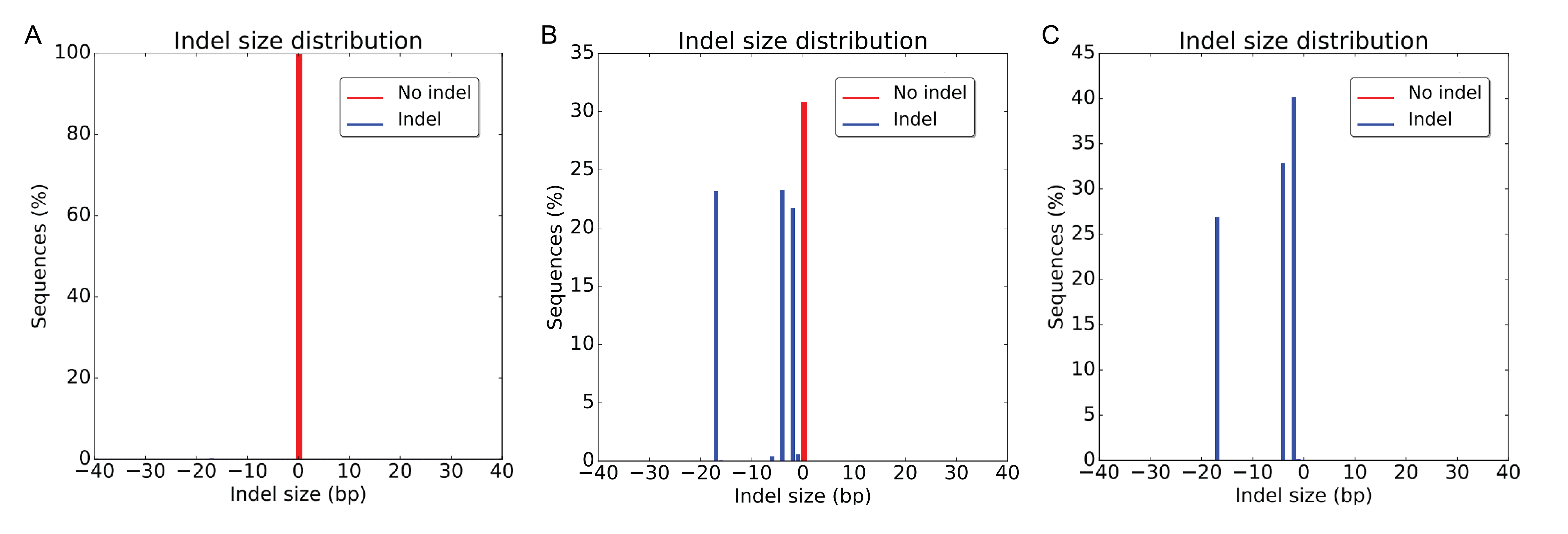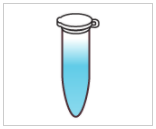
Guaranteed CRISPR Knockout Cell Line Generation
abm offers the first ever 100% Guaranteed CRISPR Knockout Cell Line Generation Service to our clients who want to have full confidence in their knockout models. We understand how obtaining successful knockout models can have a significant impact on your research.
Our Promise:
- Delivery or no charge
- 100% guaranteed full-allelic knockout at the protein level
- 2 cryovials provided per clone
- 90% cell viability
Our 100% Guaranteed Service is risk-free – you pay nothing if we do not deliver.

100% Success
100% Guaranteed
full allelicknockout at the
protein level

Risk-Free
Delivery or no charge

Research Confidence
Have full confidence in your
knockout models
Additional Info
Our Basic Vs. Our 100% Guaranteed Service:
| Basic Service (C208) | 100% Guaranteed Service (C508) | |||||||||||||||||||||||||||||
|
|
|
|||||||||||||||||||||||||||||
CRISPR Stable KO Service Case Study
Using CRISPR to develop a biallelic LIF knockout in Mouse Colon Carcinoma Cells
- LIF locus in a Mouse Colon Carcinoma Cell Line, was knocked out using CRISPR targeted genome editing.
- Surveyor assay and sequencing results showed genome editing.
- After monoclonal selection biallelic knockout was confirmed by sequencing.
Phase #1: Cas9 and sgRNA Delivery
- Three sgRNA were designed against mouse LIF locus (Mus musculus, NM_008501). Software analysis was performed to ensure the sgRNA had no predicted off targets binding sites. The selected sgRNA design was then cloned into the pLenti-U6-sgRNA-SFFV-Cas9-2A-Puro All-in-One lentivector (Figure 1).
- Recombinant Lentiviruses were packaged using abm’s second generation Lentiviral packaging system. A multiplicity of infection (MOI) of 5 was used to transduce the cells.
Figure 1. pLenti-U6-sgRNA-SFFV-Cas9-2A-Puro lentivector is an all-in-one vector for co-expressing sgRNA and Cas9 in mammalian cells. Expression of sgRNA is driven by the U6 promoter, a strong constitutive Pol III promoter. An SFFV promoter drives expression of the Cas9-2A-Puro cassette. By using the Cas9-2A-Puro cassette, cells can be directly screened for expression of Cas9, as they will be resistant to Puromycin.
Phase #2: First Round of Colony Screening for Edited Clones
- Cell colonies are isolated after puromycin selection. Genomic DNA was extracted and the surveyor assay was performed to confirm genomic editing of the LIF locus.
- A single band in a surveyor assay at the wild-type (WT) size indicates no editing has occurred; two smaller bands (that sum to the length of the WT) indicate editing has taken place.
- The surveyor assay (Figure 2) indicated that Colony 3 and 6 were edited; colony 2 was not edited; and colony 1 was inconclusive.
Figure 2. The surveyor assay indicated that Colony 3 and 6 were edited; colony 2 was not edited; and colony 1 was inconclusive.
Phase #3: Sequence Analysis of the Edited Colonies
- PCR products from Colonies 3 and 6 were further analyzed via Sanger Sequencing to determine the nature of the knockout (Figure 3).
- For colony 3 only one mutant sequence was detected, indicating that these cells are likely only heterozyotic knockouts. In colony 6 two different mutant sequences were detected.
Figure 3. For colony 3 only one mutant sequence was detected, indicating that these cells are likely only heterozyotic knockouts. In colony 6 two different mutant sequences were detected.
Phase #4: Second Round of Selection for Monoclonal Biallelic Knockout Clones
- Colony 6 was serial diluted into 96 well plates for monoclonal selection. Genomic DNA was extracted from these clones (i.e. 6a, 6b..), PCR amplified, cloned and sequenced.
- Of the colony 6 clones, sequencing showed that only clone 6a had a frameshift mutation in both alleles (Figure 4). A frameshift mutation disrupts the open reading frame, resulting in nonsense mediated decay of mRNA transcript.
Figure 4. Clones 6a, 6b and 6d all showed biallelic editing. Only clone 6a had frame shift mutations in both alleles. No WT sequences were detected in all subclones.
- Further sequencing of clone 6a confirmed that only two mutant alleles were present, the 2 bp and 4 bp deletions, and that no WT or other mutations were detected (Figure 5).
Figure 5. Further sequencing of 6a confirmed biallelic knock-out. No WT sequences were detected.
Phase #5: Confirmation of Knockout by Next Generation Amplicon Sequencing
- With next generation sequencing hundreds of thousands of alleles can be sequenced at once, resulting in a more robust dataset. By contrast Sanger sequencing is only feasible for 1-100 clones and therefore it can miss a large proportion of the population.
- Next generation sequencing was performed at each stage of selection to evaluate knockout (Figure 6). Before editing, only WT sequences were observed. After the first round of selection colony 6 showed a mixture of edited (70%) and WT (30%) sequences. Finally after monoclonal selection, clone 6a showed only edited sequences with no WT alleles present.
Figure 6. Next Generation Sequencing for CRISPR Knockout screening. A) Before knockout only WT sequences are detected. B) After Cas9 and sgRNA delivery, the first round of selection shows a mixed distribution of indel and WT sequences. C) After the second round of selection only knockouts remain.
Additional Information & MTA
Orders of this service are subjected to the completion of a signed Material Transfer Agreement (MTA) by the purchasing individual/institution for each order. If you have any questions regarding this, please contact us at technical@abmgood.com. The end user acknowledges that the Materials provided under abm’s MTA does not grant a license for commercial use or imply any ownership rights or any intellectual property rights relating to the Materials.
Please note that if the gene to be knocked out may be essential to cell survival, it is up to the end-user to proceed with the services. abm is unable to guarantee cell survival in these cases and will only attempt to rescue the clones under these conditions. abm is not accountable for cell survival if rescuing the clones (instructions to be provided customers) is unsuccessful. If customer chooses to proceed, abm will provide a hemizygous pool as the default deliverable to compensate for any lethal effects (unless otherwise requested).
Related Products
FAQs
Coming Soon
Citations
| 01 | Kang, Y. J. et al. “Regulation of NKT cell-mediated immune responses to tumours and liver inflammation by mitochondrial PGAM5-Drp1 signalling.” Nat. Commun. (2015) 6:8371 doi: 10.1038/ncomms9371 |
| 02 |
Jiang, G. et al. “Isorhapontigenin (ISO) inhibits invasive bladder cancer (BC) formation in vivo and human BC invasion in vitro by targeting STAT1/FOXO1 Axis.” Cancer Prev Res. Published Online First April 14, 2016.doi: 10.1158/1940-6207.CAPR-15-0338 |
| 03 | Okugawa, Y. et al. “Clinical significance of SNORA42 as an oncogene and a prognostic biomarker in colorectal cancer.” Gut (2015)doi:10.1136/gutjnl-2015-309359 |











